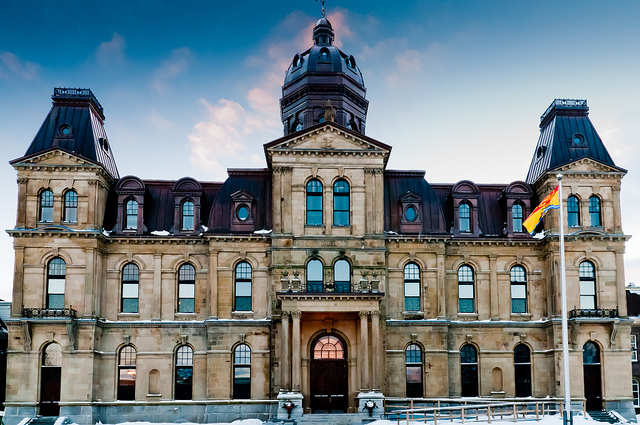Like this article? Chip in to keep stories like these coming.
Publicly funded abortion services in New Brunswick will only be expanding to the Moncton City Hospital, according to an email sent from Horizon Health Network President and CEO John McGarry to a number of doctors on Jan. 21.
In the email obtained by the NB Media Co-op, McGarry is following up with a group of doctors that he met with in Sussex on Jan. 19. He presents the rationale for the decision as a need to balance access and cost. McGarry states that in the case of “uncertain sustainable volumes, we can best reconcile all interests by making a decision on a single site. That site will be The Moncton Hospital.”
“Operational costs in one site will be only slightly affected by placing all three projected volumes together. Savings will be a minimum of $500,000 annually vs. three site option,” argues McGarry.
The government’s attempt to save money by jeopardizing women’s health does not sit well with New Brunswickers who fought hard to repeal the province’s anti-abortion legislation.
“First, we were appalled that Horizon, the health authority servicing a large part of the province, chose to wait until April to have any abortion services at its hospitals. Learning that services will only be available in the Moncton City Hospital, instead of prioritizing areas without any services is unacceptable,” says Jessi Taylor, Reproductive Justice NB (RJNB) spokesperson.
Currently, only two locations are providing publicly funded abortion services in New Brunswick and both are part of the Vitalité Network: the Dr. Georges-L.-Dumont University Hospital Centre in Moncton and the Chaleur Regional Hospital in Bathurst. There are no plans to expand abortion services to Northwest or Southwest New Brunswick.
Days after the meeting between McGarry and the doctors, New Brunswick Health Minister Victor Boudreau was quoted in a story by CBC on Jan. 30 saying that he was surprised to learn that Horizon will not publicly disclose which of their hospitals will provide abortions. McGarry was quoted in the same story saying the locations of abortion services would not be disclosed because of possible protests.
In a response to an information request received Feb. 24, by RJNB, Boudreau says, “Abortion services are also expected to be offered by the Horizon Health Network. The details of the service offerings have not been finalized or announced at this time.”
“By refusing to disclose where people can access services, Horizon is contributing to a culture of shame around abortion. Learning that they will only be providing services in Moncton rather than in areas without service, despite having the equipment and willing doctors is unacceptable. Refusing to use resources at our disposal is a disgrace,” says Taylor.
The capital cost for abortion services at each site could be more than $800,000 and Fredericton could be more expensive because of privacy/security argues McGarrie in his email.
Horizon’s McGarry further argues that the Moncton Hospital has a “firmly committed clinical team of, at a minimum, four physicians.” According to RJNB, there are equally committed physicians who have offered to perform abortion services in other centres in the province where services have not been available.
Clinical abortion services returned in Fredericton with the opening of Clinic 554 on Jan. 16. At the time of the closing of Morgentaler Clinic in July 2014, the Fredericton clinic was performing about 600 abortions or 60 per cent of the procedures performed annually in the province.
The fee for an abortion at the Morgentaler Clinic when it closed was $700 before 14 weeks of pregnancy, and $850 for 14 to 16 week pregnancies. New Brunswick is the only province in Canada with clinical abortion services not covered by Medicare.
RJNB is calling on the government of New Brunswick to ensure abortion access across the province, including covering the costs of abortions done at Clinic 554 in Fredericton.
“The Horizon health authority is employing this model to save money, but it doesn’t advocate for clinic services which are proven to be more cost effective. This makes us feel that their reasoning is less than sincere,” says Taylor.
Tracy Glynn is a member of Reproductive Justice NB.
This article originally appeared on NB Media Co-op and is reprinted with permission.
Photo: flickr/ Christopher Craig




